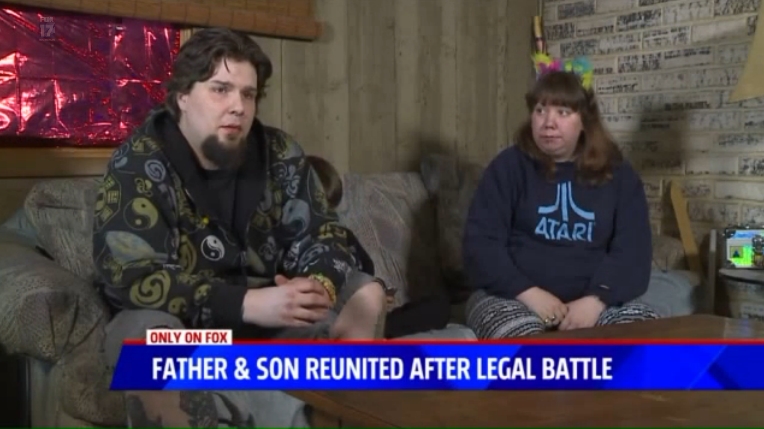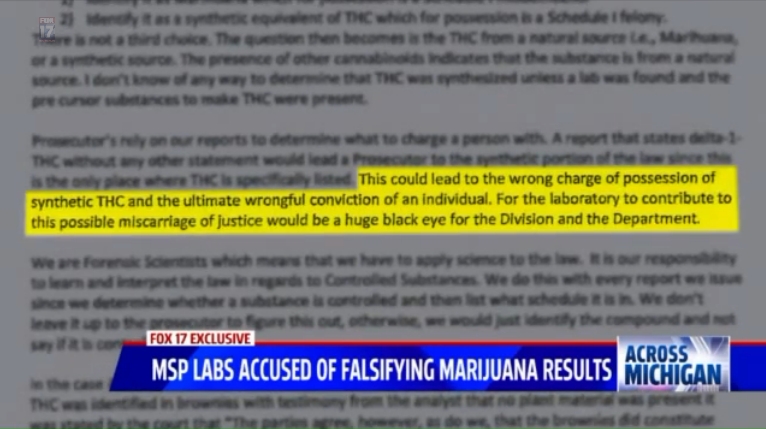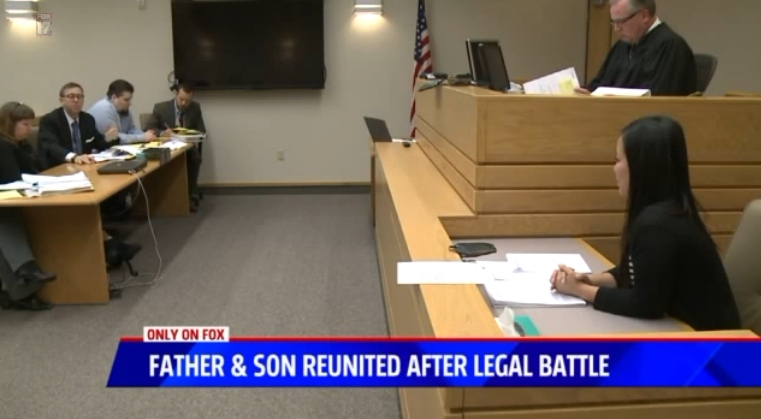
Apr 8, 2016 | Blog, Marijuana Criminal Defense Attorney Michael Komorn
CLIO, MI – The attorney for the owner of a medical marijuana facility faced with the possibility being padlocked for a year questions why prosecutors are trying to have the business declared a nuisance.
Attorney Michael Komorn said he doesn’t understand why prosecutors are trying to close the Clio Caregiver Connection as a nuisance even though the community hasn’t come forward with complaints.
“It appears that the main allegation regarding ‘a nuisance’ comes from the drug task force and not the local police agency or community leaders or citizens,” Komorn said.
Genesee County Prosecutor David Leyton filed a nuisance ordinance violation March 3 against the business after an investigation by the Flint Area Narcotics Group alleged the business at 105. N. Mill St. was acting outside of the state’s medical marijuana act.
FANG began its investigation into the facility Sept. 22, after receiving information that the facility was acting as a dispensary, according to the violation complaint.
“It appears as if FANG and FANG alone are the persons complaining of the behavior and will testify about that behavior justifying any injunctions,” Komorn said. “Instead, FANG warrants an injunction for their behavior, and the complaint of nuisance in this case.”
State law allows officials to padlock a property for up to a year over complaints of drug dealing.
Three separate controlled purchases of marijuana were conducted at the business, according to the complaint. The purchaser was a medical marijuana patient, but no person present at the facility was the registered caregiver for the buyer, the complaint claims.
State law allows individuals to serve as caregivers for medical marijuana patients, allowing them to possess up to 2.5 ounces of useable marijuana or 12 marijuana plants for each of their registered patients. Caregivers are allowed to have up to five registered patients.
Search warrants were obtained for the facility and executed Feb. 18. Officials claim they discovered multiple jars of marijuana in cases listed for sale, edible marijuana items, THC wax, suspected psychedelic mushroom cultivation, suspected LSD tabs in the business owner’s vehicle, 12 marijuana plants and $860, according to the complaint.
Komorn also took issue with Leyton filing the complaint, claiming it contradicts prior statements from the prosecutor.
“The restraining order action seems absurd in light of David Leyton’s declaration that he will only review cases where the ‘community’ brings it to him or his office,” Komorn said.
Leyton said Komorn took his statements out of context, and said he would review any case brought to him by law enforcement.
A temporary restraining order was issued this month against the business by Genesee Circuit Judge Archie Hayman after authorities alleged the business continued operating even after the warrants were executed.
On Monday, March 28, Hayman agreed to continue the restraining order until a hearing is held on the padlocking of the business.
The business’s owner did not appear in court for Monday’s hearing. His name is not being released because he has not yet been arraigned on the suspected crimes.
The case will return to court April 25 when Hayman will be asked to decide if the business can be padlocked for up to a year.
By Gary Ridley | gridley@mlive.com | March 31, 2016

Apr 8, 2016 | Blog, Criminal Defense Attorney Michael Komorn, Medical Marijuana Attorney Michael Komorn, News, Victories Project
SPRING LAKE, Mich. — After 18 months, a Spring Lake family’s son is out of foster care and reunited with his parents. Yet the fight to be together, through court battles and serious drug charges despite being card-carrying medical marijuana patients, still haunts them.

Thursday, Max Lorincz’s son Dante, 6, picked out his favorite toys from a basket in the family’s living room, handing one to FOX 17 saying, “this is my dad’s favorite.”
Piece by piece, Max and his family are putting their lives back together.

“It’s like 100 pounds being lifted off my chest,” Lorincz said. “It’s like our entire life was put on hold the entire time he was gone.”
Dante was ripped away from the couple after Max was charged with a felony for possession of “synthetic THC.” Between family and criminal court cases, it’s an experience they call hellish.
“It’s not something I’d wish on my worst enemy, the experience we went through,” Lorincz said.
“[Dante] is 6 now, almost 7, you know he’s his own little person at this point. But before, he was just coming into his own, and we missed that entire portion of his life.”
It is a bizarre case FOX 17 first uncovered: the judge handling the criminal case ultimately threw out the charge 16 months later.
September 2014 it all started when police found a thumbprint of hash oil at Lorincz’s home during an unrelated medical emergency. That lead to a felony charge for a charge the judge later ruled unfounded: possession of “synthetic THC.”

A previous, now controversial Michigan State Police policy change in the state’s crime labs requires forensic scientists to write “origin unknown” when testing marijuana without plant matter visible.
Fast-forward 16 months, a judge drops Lorincz’s felony. But the court battles continued in family court for Lorincz and his wife to regain custody of Dante for another two months against Bethany Christian Services.
Only FOX 17 cameras were in court for several permanency planning review hearings including last November during this exchange between Lorincz’s Attorney Michael Komorn and the Bethany Christian Services caseworker:

“What is it, other than [Lorincz’s] use of marijuana, that creates bad parenting?” asked Komorn of the caseworker.
She testified, “Marijuana is a psychoactive substance, and being under the influence doesn’t allow you to be in the most clear mind for your child.”
This woman was the third of five total caseworkers now in the 18-month family court case representing Bethany Christian Services. The agency threatened to petition for permanent removal of Dante from his parents.
In this November hearing, the judge already allowed Lorincz, a legal card holder, to continue use of medical marijuana. The caseworker here on the stand testified that marijuana, even legally used for medical conditions, may make an unfit parent. This was a sticking point in many of these permanency planning review hearings, but ultimately she testified BCS had no evidence to prove drug abuse.
Komorn continued to ask her, “One of the reasons for you to recommend the permanent removal is because of drug substance issues, am I right?”
To which the caseworker said, “Yes.” Komorn continued with, “Ok, and we’ve already clarified that there are no drug substance issues at all regarding my client [Lorincz], am I right?”
She testified, “Yes, yes.”
Now, weeks later, another slap in the face for the Lorincz family: a billboard popping up several blocks from their home on 144th Avenue, with the face of Attorney Chris Wirth, who advocated for their son, working against them in their custody fight.

Lorincz and his family are moving on, but he continues to call for clarified medical marijuana patient rights in Michigan, for the medicine he says saved his life.
“2009 when he [Dante] was being born, he was born in Butterworth Hospital, I was dying of liver failure in Blodgett Hospital across town. It was due to my doctor prescribing too much medication,” Lorincz said.
And the 18 months Lorincz spent legally removed from his son, he reminded, they will never get back.
“We’ll try and make as many positive memories as we can to make up the gap,” Lorincz said. “But there’s definitely nothing that’ll replace the time that we lost, that’s for sure.”
The Lorincz’s have started this GoFundMe page, asking for any help to cover their expenses at this time.

Mar 28, 2016 | Blog, Criminal Defense Attorney Michael Komorn, Michigan Medical Marijuana Criminal Defense Attorney Michael Komorn
“This is one of those cases in an attorney’s career that is not easily forgotten, and is a reminder to me of the reason I became an attorney.”
– Michael Komorn, attorney from Komorn Law and recipient of the Michigan Bar Association Right to Counsel Award for 2015.
SPRING LAKE- Max Lorincz and his wife will have custody of their six-year old son returned to them by court order in a Michigan case that made national headlines over a dispute with the State Police Crime Lab over marijuana testing.
Dante, the Lorincz’s son, was removed from his Spring Lake home after investigators charged Max with possession of synthetic marijuana- a felony in Michigan. Lorincz is a registered medical marijuana patient and has always claimed that the substance found by police during a search of his home- a “smear” of substance, so small it’s weight could not be quantified- was medicinal and derived from a natural plant source.
The case began not from an investigation into Lorincz, but with a 911 call from Max to get medical help for a family emergency not related to marijuana. While assisting with the emergency, police accidentally discovered the smear of suspicious substance and began criminal proceedings.
SUPPORT THE LORINCZ FAMILY: VISIT THEIR GOFUNDME PAGE AT https://www.gofundme.com/SVQ5W5W
In building a case, attorney Michael Komorn and investigators from his office probed the Crime Lab on the policies and procedures that lead to the determination of synthetic marijuana in this case. They discovered a hotbed of controversy, including prosecutors coaching scientists to produce results that favored the prosecution in court cases. Emails from representatives of the Prosecuting Attorneys Association of Michigan to heads of the Lab were revealed, as were protests from scientists forced to change how they report their science for political advantage- changes that brought dire criminal consequences for the citizens whose samples were being evaluated.
“The lab technician in Lorincz’s case testified that he has been testing tetrahydrocannabinol, or THC, for 25 years. THC is the main psychoactive ingredient in marijuana, also present in synthetics. However, a recent policy change means the technicians have to write “origin unknown” when testing this type of THC on lab reports,” reported Fox News in 2015.
The change in reporting was directly derived from the prosecutor-initiated procedures- and that was enough information to put doubt in the mind of the judge. The lab was not proving the substance was synthetic, they were inferring it, and that does not meet the standard of evidence for courtroom procedures.
Based in a large part on these revelations about evidence handling, Komorn Law secured a dismissal of felony charges in the Lorincz case on January 22. “The judge got it right: the law is very clear on this, and any prosecutor that proceeds under a theory (of synthetic THC), as this office did here, is flat-out wrong,” Komorn told Fox News at the time. “(Prosecutors) should be stopped from doing that… all defense lawyers should know that it’s an inappropriate charge.”
“The wheels of justice grind slowly but exceedingly fine,” said Jeff Frazier of Komorn Law, one of the people directly responsible for exposing the inappropriate influence used by prosecutors in the Crime Lab scientific method.
After the charge was dismissed Komorn Law fought to reunite the family. “Getting Max’s son back was the last and most difficult piece of the puzzle,” Komorn told The Compassion Chronicles. “To me the CPS case reflects an equally broken and corrupt agency within our government.”
Bethany Christian Services (BCS), who has been paid by the state’s Child Protective Services (CPS) to take over the foster care of the young Lorincx child, contested the boy’s return, saying the case had been going on for so long the familial bond had been broken and it was in Dante’s best interest to remain under their guidance.
“Even after we eradicated the allegations of the removal, and dispelled the myth that Max’s status as a medical marijuana patient was not evidence of harm to the child, the agency, prosecutor and guardian ad litem seemingly dug in deeper.”
Once the criminal charges were no longer justification for the continued removal of Dante from the Lorincz home, BCS made other ridiculous claims to explain why the child could not be returned to his parents: he plays lots of video games, his family is poor and his mother is ill.
Court hearings revealed that the behavior shown by Bethany Christian Services, including asking the child himself to choose between his parents and other living options, were contradictory to state procedure regarding foster care. BCS was removed as supervising agency of the Lorincx child by court order, which opened the door to having him returned home.
“It seemed as if every time we made some progress, the agency, the prosecutor came up with some other, unrelated complaint or reason to oppose reunification. We were fortunate that the Court agreed with us, and determined the ( say anything to win) allegations of being poor, his wife’s mental illness, and playing video games are not grounds for removal,” said Komorn.
Bernard Jocuns is a criminal defense attorney from Lapeer has been following the case. “It angers me that professionals that the public are supposed to trust are responsible for this miscarriage of justice. The Michigan Court Rules and Rules of Evidence are in place to provide parity to prosecution and defense (attorneys).”
“It is scary to think what would be happening to Max now, had he not caught the ear of a prominent criminal defense attorney who was willing to take his case pro-bono ,” said Jamie Lowell, a Board member of the MILegalize organization.
The decision was delivered on March 25; it could take several days before Max’s son is returned home to him.
“Yesterday’s ruling ended the 17 month nightmare for the Lorincz family, but it does not end this matter,” Komorn said today. “Komorn Law intends to pursue and exercise every single possible legal recourse available to us, to make this family whole again.”
A listing of Komorn Law Blog updates on the case can be found at:
komornlaw.com/press/komorn-in-the-news/people-v-max-lorincz/

Jan 26, 2016 | Blog, Marijuana Criminal Defense Attorney Michael Komorn, News, Recent Victories
GRAND HAVEN, MI — A judge has sided with a Spring Lake man in his battle to get a felony marijuana charge dismissed, a case that hinged on controversial state police testing methods.
Ottawa County Circuit Court Judge Ed Post granted a motion to quash the case against 35-year-old Max Lorincz, who was charged with possessing synthetic THC.

Lorincz was charged in early 2015 with possessing marijuana after police responded to his house for a medical call and found a small container containing a dab of marijuana oil. Lorincz uses the oil to control pain after a 2005 debilitating back injury.
Lorincz argued he was a registered medical marijuana patient and refused to plead guilty to the charge. Prosecutors then upgraded the count to the felony.
Related: Michigan’s medical marijuana law circumvented by crime labs’ THC reports, attorney charges
Prosecutors alleged the charge was appropriate because state police crime lab technicians simply listed the oil as containing THC, with the origin unknown because there was no plant-based material found.
Ottawa County Prosecutor Ron Frantz earlier described the charging decision as a “legal question of statutory interpretation.”
But Lorincz’s attorney, Michael Komorn, argued that prosecutors need more evidence before they can file a charge of synthetic THC. In Lorincz’s case, the oil was from marijuana, he said.
Related: ‘It’s been a nightmare,’ man says of contested synthetic marijuana charge
Komorn argued some prosecutors across the state have pressured the crime lab to report oils and waxes as “origin unknown,” allow them to pursue harsher charges.
The troubles surrounding the felony charge for Lorincz involved more than just a criminal case.
Authorities placed the 6-year-old son of Lorincz and his wife into foster care after an Ottawa County Family Court petition was filed. Their son has been in foster care for more than a year and the couple, as of late October, only had supervised visitation rights.
A hearing is scheduled for Friday, Jan. 22, to review the Family Court case.
Frantz issued the following statement following Post’s ruling:
“The court’s decision turned on definitions and statutory language that we believed supported the charge as written. The District Court judge found our interpretation to be correct, Circuit Judge Post disagreed and ruled otherwise,” Frantz wrote.
“We believe the increasing prevalence of extremely high potency marijuana-based and synthetic-based drugs is reason to update and clarify our statutes,” he said.
http://www.mlive.com/news/grand-rapids/index.ssf/2016/01/felony_synthetic_thc_charged_t.html#incart_river_home
E-mail John Tunison: jtunison@mlive.com and follow him on Twitter at twitter.com/johntunison








